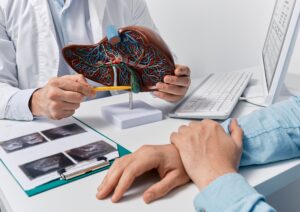Alcohol use disorder (AUD) is defined by the NIAAA as a relapsing chronic brain disease characterized by the inability to stop or regulate one’s alcohol use. AUD does not discriminate between men and women. When you struggle with an addiction to alcohol, it will gradually destroy your health, well-being, and life. However, there are some differences between alcohol withdrawal for women and men that you need to know.
Does Alcohol Affect Women and Men Differently?
While the disease of alcoholism does not discriminate, the effects experienced when drinking is different in women and men. For starters, since most women tend to weigh less than men, it does not take as much alcohol for women to start experiencing its effects.
Next, how the body metabolizes alcohol also varies. Alcohol tends to remain in women’s bodies longer because of genetic differences. This is because their bodies have more difficulty processing and breaking down alcohol. As a result, the effects last much longer.
Furthermore, women often drink excessively when they are with men because they believe they need to drink as much as men do. Unfortunately, if they do not, they can feel social pressure that they are inadequate in some way.
As a result, excessive alcohol misuse by women increases the risks of health-related diseases and addiction. In addition, women with AUD tend to have a higher risk of sexual assault.
The Three Stages of Alcohol Withdrawal for Women
Both women and men will go through three stages of alcohol withdrawal. However, alcohol withdrawal for women can have different effects during the withdrawal process. Some women can feel certain symptoms longer, or it can take longer to fully detox because their bodies are still processing alcohol.
Stage One
The first withdrawal stage starts about eight to ten hours after the last drink. The most common withdrawal symptom is having a hangover. You can feel nausea, vomit, have a splitting headache, and experience body aches and pains.
Stage Two
The second withdrawal stage manifests within two to four days after the last drink. Stage one symptoms intensify and can be accompanied by insomnia, cravings for alcohol, elevated blood pressure, increased respiratory rate, anxiety, and mild depressive symptoms. Some women may also be prone to seizures at this stage.
Stage Three
During the third stage, alcohol withdrawal for women can become extremely life-threatening. For example, if a woman experiences seizures in the second stage, there is a high probability they will experience delirium tremens (DTs). DTs can also cause confusion, fear, hallucinations, continued seizures, thoughts of self-harms, extreme body aches and pains, and death in certain situations.
Alcohol Withdrawal for Women Timeline
The exact alcohol withdrawal timeline for women will vary based on several factors, including:
- The amount of alcohol consumed.
- The frequency of drinking.
- The length of time one has been drinking.
- Whether one binge drinks frequently.
- The prevalence of mental health disorders.
- The family history of alcoholism.
However, the general timeline of alcohol withdrawal progression is as follows:
- Mild withdrawal symptoms begin within six to twelve hours after the last drink.
- Moderate withdrawal symptoms can start within 24 hours but can take up to two to four days before they appear.
- Severe withdrawal symptoms can begin much more quickly in women. They could start within 24 hours of the last drink or take up to a week to appear.
- The risks of seizures tend to be the highest within one to three days after the last drink.
- The risks of DTs tend to be the highest within two to four days after the last drink.
Once a woman enters the third stage of withdrawal, the symptoms will gradually dissipate. However, this process could take several weeks before the alcohol detox is complete.
Furthermore, some women can experience post-acute withdrawal syndrome (PAWS) when they have consumed alcohol for quite some time. PAWS symptoms can last for several months to several years and could include:
- Mood Swings
- Irregular Sleep Patterns
- Depression
- Lack of Energy
- Panic Attacks
- Anxiety
- Irritability
- Cognitive Functioning Impairment
- Extreme Cravings for Alcohol
Fortunately, with the proper AUD treatment, PAWS symptoms will eventually subside completely. For example, medication-assisted treatment using acamprosate can help manage and alleviate certain PAWS symptoms.
Why At-Home Alcohol Detox Is Dangerous
Deciding you want to quit drinking and get help for your AUD is an essential first step to recovery. However, attempting to self-detox at home unsupervised is never recommended and can be extremely dangerous.
For starters, mild withdrawal symptoms can quickly escalate to moderate and severe levels. Next, there is the risk of seizures that can be fatal. Then, there is the risk of DTs if you experience seizures, and unsupervised DTs can result in death.
The safest way to detox from alcohol is with medically supervised detox at an addiction and medical detox center. Here, you will have constant supervision by medical and addiction specialists. Their expertise can help alleviate the severity of symptoms and include medication-assisted treatments.
Alcohol Detox and Addiction Treatment for Women in Pompano Beach, FL
When you want a safe, caring, and supportive environment to begin alcohol detox and addiction treatment, you can count on the JCA-accredited Retreat of Broward in Pompano Beach, FL. We offer personalized, medically supervised detox and addiction treatment programs for women. Take the first steps to recovery by contacting us today.






